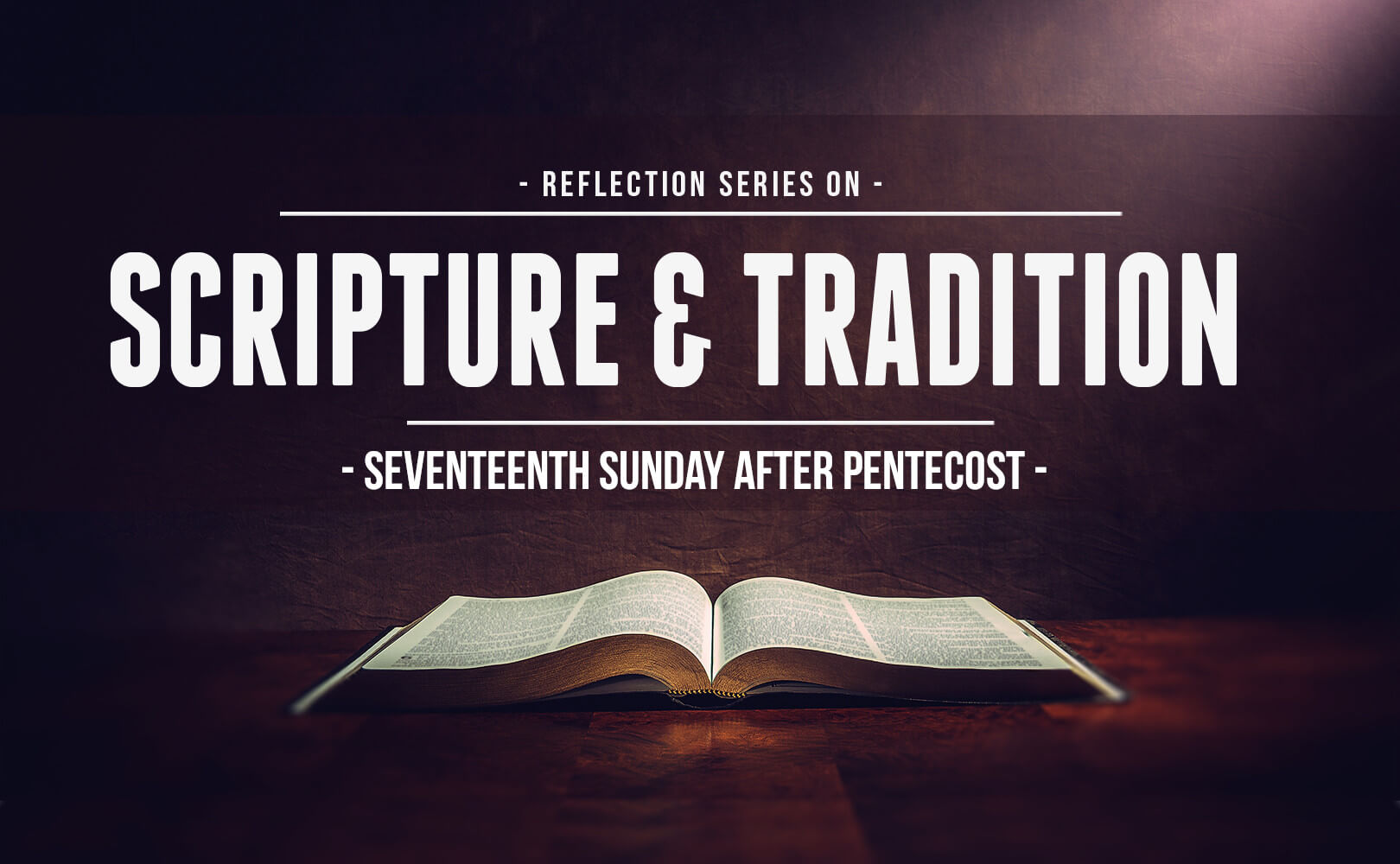Epistle: Ephesians 4:1-6
Gospel: Matthew 22:34-46
Grant, we beseech You, O Lord, that Your people may avoid the temptations of the devil, and with pure minds follow You, the only God.
– From the Collect for the Seventeenth Sunday after Pentecost
(Note: some parishes may be celebrating the External Solemnity of Our Lady of the Holy Rosary this Sunday instead of the Seventeenth Sunday after Pentecost.)
Sunday’s readings are wonderfully Trinitarian, demonstrating the unity of the One God, while expressing the diversity of the Trinity.
The collect for the Mass prepares us by praying that we might “follow You, the only God.” Monotheism is the great gift of the Jewish people to the world; it was their mission to be an example to the other nations proclaiming that all the other gods were false gods, and that only the God of Abraham, Isaac, and Jacob was the true God. This firm monotheism passed on to Christianity, as can be seen in St. Paul’s letter to the Ephesians, when he writes that there is “One God and Father of all, who is above all, and through all, and in us all” (Eph 4:6).
Yet St. Paul also believed that God was a Trinity of Persons, Father, Son, and Holy Spirit. As St. Jerome explains, “There is one Lord and one God because the dominion of Father and Son is a single Godhead. The faith is said to be one because we believe similarly in Father, Son, and Holy Spirit” (Epistle to the Ephesians 2.4.5). Although one God, often the three Persons are distinguished in roles (although every action of any Person of the Trinity is an action of the entire Godhead). St. Thomas Aquinas, in commenting on this passage, writes, “Majesty is appropriated to the Father who is the source and principle in the divinity, exceeding the whole of creation. Power is appropriated to the Son who is that wisdom which ‘reaches from end to end mightily’ (Wis 8:1). Grace is appropriated to the Holy Spirit who ‘has filled the whole world’ (Wis 1:7)” (Commentary on Ephesians 203).
In Sunday’s Epistle, Our Lord is also revealing the truth of the Blessed Trinity. In a dispute with the Pharisees, he quotes part of Psalm 109 (110), including “The Lord said to My Lord.” Christ asks how David could call his son “Lord?” A son is not greater than his father and therefore would not be called Lord by him. In this, Jesus—the true Son of David—is revealing his divinity. St. John Chrysostom explains, “[Jesus] is now quietly leading them to the point of confessing that he is God…This is why he introduces David into the discussion, that his true identity and divinity might be more clearly recognized…Hence he now brings in the prophetic testimony to his being Lord, and to the genuineness of his Sonship and his equality in honor with his Father” (The Gospel of Matthew, Homily 71.2).
The Trinity is the fundamental doctrine of Catholicism: our God—the only God—is one and He is three. The Second Person of the Trinity came down and became man to reveal this to us. Although the doctrine can be mysterious and difficult to grasp, we must constantly meditate upon it, knowing it reveals to us the loving life of the Godhead.


